Tyson Adams's Blog, page 60
June 23, 2016
Is sport king in Australia?
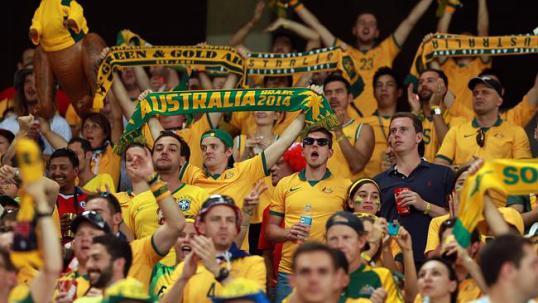
Sports Supporters: Alcohol Compulsory Accessory
With pork-barrelling season in full swing, we will be seeing plenty of politicians hitching their wagons to prominent sports and sporting teams. The proclamations that sports are True-blue, dinky-di, Aussie will come to win over voters, with a little somethin’ somethin’ in the budget to sweeten the deal. Because sport is king in Australia, right?
Aussies are routinely described as sports mad, sports addicts, and that we love watching and playing sports in sporty sports ways. But how many of us actually play sports? How many of us actually watch sports? Given that you could describe weekly matches of football as repeats of the same teams doing the same thing for months on end annually, it is worth taking a look at a few of our assumptions about the claims.
Let’s start with a look at how many Aussies play “sports”. Inverted commas around sports? Yes, because when people say that 60% (11.1 million) of Aussies play sports – down 5% compared to 2 years previous – what they actually mean is that we’re classifying walking and generally not sitting on the couch watching TV as sport. Let’s make it fairer on sports and subtract the walkers from being classified as sport participants. And let’s not succumb to temptation and call golf just more walking with intermittent cursing. That means that our 11.7 million “sports” participants is suddenly 7.5 million, which is 41.4% of the population (and falling with the ageing population). That figure sounds impressive until you realise that figure is participation of at least once in the past year and doesn’t account for the regularity of participation. How regularly someone is involved in sports is a much better indicator of our interest and love of sports. As opposed to accounting for that time you went to the gym because of a New Year’s resolution or because the doctor ordered you too out of concern for being dragged into an orbit around you at your next visit. The reality is that less than half of the population engage in regular (3 times per week on average) physical activity, with roughly a third of those people being gym junkies (NB: young men are more likely to play a sport, that drops with age and isn’t replaced with other activities, whilst women are more likely to be involved in non-organised sports and remain doing so).
The Top 20 most popular physical activities are dominated by fitness activities like the already mentioned walking, aerobics/fitness, swimming, cycling, and running. One of the big name sports, AFL, ranks 16th on the list behind yoga. When yoga beats football for popularity it must only be a matter of time before the PM declares it the most exciting sport. For those wondering where rugby is on the list, the rest of Australia says ‘hi’.
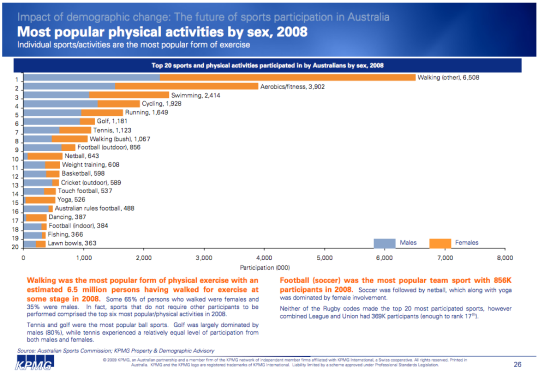
Of course, this is only looking at sports. How does sports participation compare to other activities? Well, ABS figures show that we spend roughly 23 minutes a day reading, versus 21 minutes on sports and outdoor activities (NB: this varies between genders and age groups). The US figures show similar results with more time reading than playing sports, but they also spend less of their day on both activities. So at least we are still better read and fitter than Americans in the low bar metrics.
Obviously sports aren’t all about participation and most would regard themselves as avid armchair sportspeople. It could be argued that the best way to stay injury free in sports is to participate from the comfort of the couch in front of the TV at home. The other option is to attend a sporting stadium dressed in clothes made from random assortments of gaudy colours to cheer on a team who are wearing similar clothes but are less inebriated. Or would the most appealing option be to go to a movie, concert or theme park? The correct answer is that people would prefer to attend a movie (59%), a concert (40%), or a theme park (34%). Live Comedy (31%) was more popular than Football (30%), Cricket (29%) and Rugby (25%).
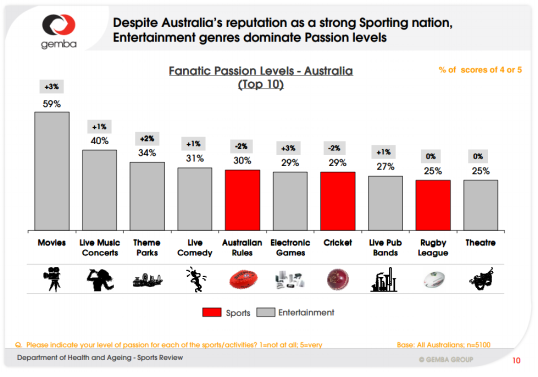
Of course, someone is bound to point to spectator numbers for AFL, A-League, and NRL that look very impressive. With average match attendances in the tens of thousands, and millions annually, sports are clearly important.
Competition
Total spectatorship
Average match attendance
Year
Ref
A-League
1,887,206
13,480
2013–14
[108]
Australian Football League
6,975,137
33,696
2014
[109]
Big Bash League
823,858
23,539
2014–15
[96]
National Basketball League
574,813
5,132
2013–14
[96]
National Rugby League
3,060,531
15,940
2013
[110]
Super Rugby
773,940
19,348
2012
[111]
At a glance the figures look mildly impressive, but much like enhancement pouch underwear, things aren’t nearly as impressive when you look at the attendance figures in the cold light of day.
Even if we disregard the doubling up and totalling of attendance occurring in the stats, it is easy to see that even the most popular sport in Australia would rank behind visiting Botanic gardens, zoos and aquariums, and libraries. They aren’t even in the same ballpark as cinema attendance. But we can go deeper on the reading, library and cinema figures, even getting frequency statistics so we can tell the difference between the people doing something “at least once” versus people doing something regularly in the past year. 47.7% of people are reading a book weekly, 70% of library attendees (mostly women) visited at least 5 times in the past year, 65% of Australians are (computer) gamers, and 65% of Aussies go to the cinema an average of 6-7 times a year. And yet sport has a segment in news broadcasts whilst reading, gaming, and parks and zoos battle to get media coverage. Technically if we wanted to be fair then the sport segment would be cut to make way for movie news and a live cross to the local library.
What about the economy? How much are households spending on sports? That’s a great question and a great segue into a discussion of how trickle-down economics doesn’t work in sports either. I mean, funding sports that way when it hasn’t worked in the economy must be a no-brainer, right? [Insert low IQ athlete joke here] Or we could stay on topic and discuss the $4.4 billion sports and physical recreation spend by households annually. Let’s not complicate things by talking about the buying of stuff like footwear, swimming pools, and camper vans. Seriously, camping is in the sport spending category? Either way, $4.4 billion sounds like a lot of money, until you realise that gaming is a $3 billion industry, and that households spend $4.1 billion on literature and $4.7 billion on TV and film.
We allow governments to spend a lot of money on big sports and big sporting events. Think that hosting the Olympics will encourage people to play sports? Nope. Actually, seriously, nope. One report described this idea as nothing more than a “deeply entrenched storyline”, sort of like a fairy tale handed down from one Minister for Sport to the next. Part of the problem is that we buy this narrative hook, line, and sinker, such that the sports themselves (and surrounding data agencies) never really bother to keep statistics to prove the claims. But they make for great announcements and ribbon cutting events on the election campaign trail, so the myth keeps on keeping on.
Ultimately the argument isn’t that sports are unpopular or bad but rather that we spend an inordinate amount of time pretending we like them far more than the reality. And that is impacting our elected officials more than a chance to wear a high-viz vest at a press conference. Maybe it is time to rethink what media and funding we throw at sports, and perhaps consider a gaming segment on the news.
So this pork-barrelling season look forward to the announcement of a new multi-million dollar yoga stadium in a marginal electorate near you.
Further reading:
http://www.tandfonline.com/doi/full/10.1080/19407963.2012.662619
http://apo.org.au/files/Resource/Crawford_Report.pdf
http://www98.griffith.edu.au/dspace/bitstream/handle/10072/57329/91705_1.pdf
https://theconversation.com/we-need-abs-arts-and-sports-data-to-understand-our-culture-30255
https://theconversation.com/olympics-success-leaves-a-mixed-legacy-for-australias-sporting-life-7531
https://theconversation.com/will-the-olympics-really-inspire-more-people-to-play-sport-8913

Tagged: AFL, Aussie sports, Aussies love sport, Australia, Australian love sport, Australian politics, Australian sports, Golf, Humor, Humour, Libraries, Mythaken, opinion, Politics, Pork-barrelling, Reading, Right What You No, Rugby, Sports, Sports mad, Sports mad Aussies, Statistics, Tyson Adams, Yoga

June 19, 2016
What are some great mind-blowing books for a fiction fantasy lover?
There are so many great fantasy fiction novels out there, I’m just going to list a few of my favourites.
Deepak Chopra: Quantum Healing
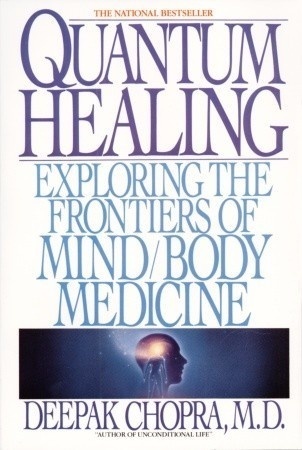
Let’s face it, Chopra has been a bestselling fantasy author for decades now, so I could have named any of his books. He never fails to churn out the most epic of fictional nonsense, but Quantum Healing has to be his most mind-boggling work.
Various: Climate Change: The Facts
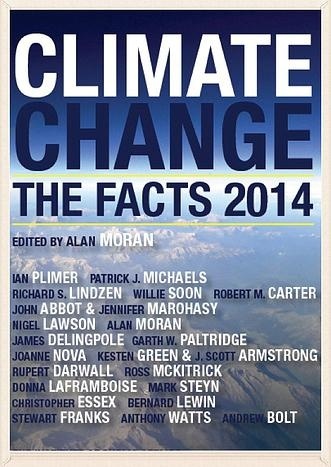
Okay, I’m cheating a bit here, as this treads into science fiction territory, but as a work of fantasy, it also holds its own. This collection of short stories is by a who’s who of fantasy authors on the theme of an alternate reality where climate change isn’t real.
Jeffrey Smith: Seeds of Deception

From everyone’s favourite flying yogi comes his groundbreaking fantasy novel about conspiracies, genetics, food, and how to ignore several fields of science and scientists by shouting la-la-la-la. Also qualifies as a comedy due to being so laughable.
Stephanie Messenger: Melanie’s Marvelous (sic) Measles
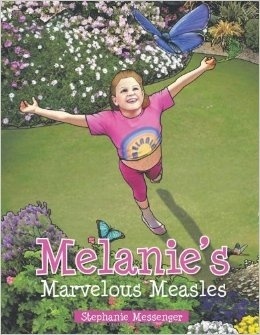
An homage to Roald Dahl’s George’s Marvellous Medicine, this piece of fantasy is notable for being written as though the author were a child who never learnt English. Such an amazing piece that is sure to have you queueing for the iron lung.
This post originally appeared on Quora.
Tagged: anti-GM, anti-GMO, Anti-Vaccination, Climate change denial, Deepak Chopra, Fantasy, Fantasy fiction, Humor, Humour, Jeffrey Smith, Quantum woo, Quora, Quora answers, Right What You No, Satire, Stephanie Messenger, Tyson Adams

June 16, 2016
Book to Movie: Harry Potter – What’s The Difference?
I guess it was only a matter of time. CineFix have finally gotten around to comparing the Harry Potter series of books to the movies. This is part 1 of 3. Grab a butterbeer and enjoy.
Truth be told, I had to be dragged kicking and screaming to the Harry Potter series. I disliked the first film – it was clearly made for children – and could not be convinced that this phenomenon was anything more than overhyped rubbish.
Yeah, I was wrong.
It was after the movie series took on the darker and more adult tone that I became interested. I decided to see what all the fuss was about and began reading; an easy thing to do since my wife had the books in our collection. I loved the books, reading the final two on our honeymoon.
With the fandom surrounding the books, this was always going to be a series that was as faithful to the source material as possible. Last thing you want to do is piss off a bunch of kids you’re planning to milk for the next decade with film, merchandise, and costume sales. Even though the CineFix guys talk about the first three films being largely faithful adaptations, I can think of a few minor points that were glossed over in the movies, such as the Phoenix tears healing all wounds. That moment in the film seemed to smack of deux ex machina, unless you had read the books. And that is a liberty you aren’t meant to be able to take with adaptations, as the reading audience is always smaller than the movie audience… usually.
I’m looking forward to the other instalments in this book versus movie comparison, as they may explain why the movies made some of the changes they did.
Tagged: Book to movie, Book versus Movie, Book vs film, Book vs Movie, CineFix, Harry Potter, JK Rowling, Right What You No, Tyson Adams, What's the difference

June 14, 2016
Why are Aussies so well mannered, helpful, and nice?

Let me help you with that…
The main reason Aussies are so helpful and nice is that it is really hard to pick someone’s pocket if they are suspicious of you. By distracting the mark with a greeting, smile, an offer to hold your bag while you fumble with your car keys, it gives the crook more time to smoothly lift your wallet and other valuables.
Generations of breeding among convict settlers has perfected the balance required to be the perfect thief. A large part of being the perfect thief is charm.
Thanks for reading this answer, and ignore the strange purchases on your credit card.
This post originally appeared on Quora.
Tagged: Aussie convicts, Aussies, Australian culture, Convict settlers, Humor, Humour, Nation of thieves, Pickpocket, Quora, Quora answers, Right What You No, Satire, Tyson Adams

June 12, 2016
Don’t Give Your Work Away
Expolitation requires two parties: the one lying on the barrel and the one standing over them. Probably best not to willingly lie on the barrel.
Yesterday I was approached by the BBC, they wanted to use this image as part of a story they were doing on the weather in the South East of the UK.
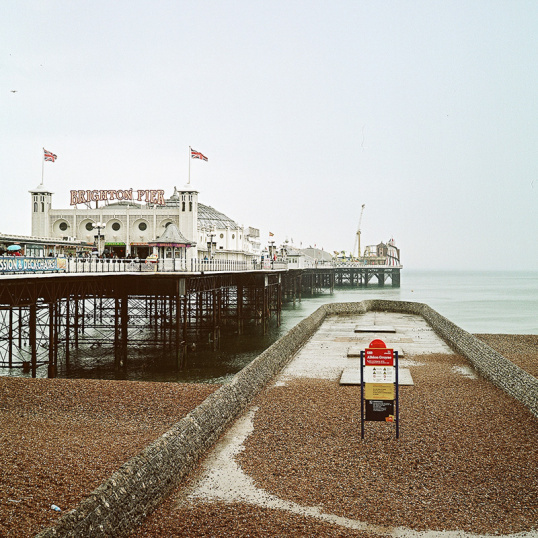 ©2016 Photo: Dave Nash
©2016 Photo: Dave Nash
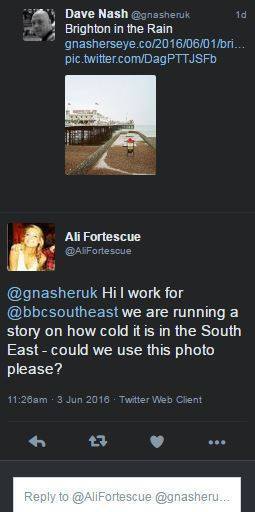
Of course I said yes and said my rate would be £75 for the usage (I wasn’t sure on what to charge, so I checked with some professional photographers what the rate was. They all said between £75 and £90, so I went in at the lower end of the scale). This was the reply I got…
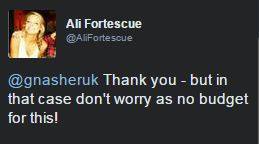
Those two words keep showing up these days, “No Budget”. Really no budget to pay people for their work! So a multi-million pound company like the BBC has no budget to pay people? I find that rather hard to believe, in fact I find it offensive that they have the nerve to ask people. They are not a…
View original post 353 more words

June 9, 2016
Book Review: Snow Angel by Badger Jones
 Snow Angel by Badger Jones
Snow Angel by Badger Jones
My rating: 3.5 of 5 stars
What if your Guardian Angel is watching you right now? Yeah, better close that other browser tab. You know the one.
Alex is a bum. His daily adventures revolve around stomping through the snow to buy the best “bang for buck” beverages after begging for money. And then he meets his Guardian Angel who is a huge fan of his lifestyle. Oh, and apocalypse. Gotta avoid another one of those.
In the interests of full disclosure, my friend Badger wrote this novel. He didn’t offer me financial, reciprocal, nor sexual favours for a favourable review: the bastard.
There is a lot to like about this novel. There is a hard reality to the main character’s life as the supernatural intrudes upon the tale. There is humour combined with a grittiness throughout. But I also found myself wanting the novel to advance a little faster. It wasn’t laboured, it’s actually quite fast paced, but it felt like I was having to sit still for too long as Alex wrapped his head around what was happening. Although, this is often the risk with the loser anti-hero; you can get annoyed at them.
In other words, give it a read.
Tagged: Badger Jones, Book review, Book reviews, Guardian angel, Reading, Right What You No, Snow Angel, Tyson Adams, Urban paranormal

June 5, 2016
Book Review: The Lost Island by Douglas Preston and Lincoln Child
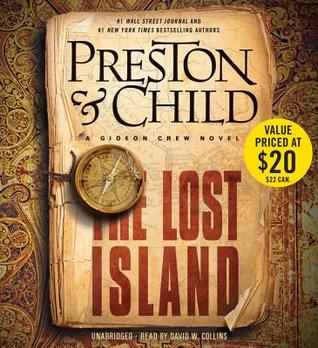 The Lost Island: A Gideon Crew Novel #03 by Douglas Preston
The Lost Island: A Gideon Crew Novel #03 by Douglas Preston
My rating: 3 of 5 stars
What did the one eyed monster say to the art thief….. Wait, this isn’t that sort of novel.
Gideon Crew has been tasked with stealing a page out of a rare and valuable Book of Kells in order to uncover a map. Like any good map, it leads to a treasure worth killing for; something Google Maps really needs to work on. To follow the map Gideon needs a sidekick who knows ancient Greek and the tale of Odysseus. Off Gideon and Ami romp to find the McGuffin.
Douglas Preston and Lincoln Child rank somewhere on my favourite author list, since I’m a fan of their individual novels and their joint Pendergast series. So I was somewhat disappointed in my first outing with the Gideon Crew series. This isn’t a bad book, but it isn’t good either.
Normally the usual “historical artefact can save/doom the world” trope is deftly handled by Preston and Child. They wrap enough interesting characters and plotting around the improbable to make it all work. But the minor characters weren’t that interesting and Gideon was not a character I connected with. You could probably replace Gideon with an amorphous blob of sentient putty and I’d have been more engaged. And you need this engagement because you have to ignore how ludicrous a race of cyclops are – seriously, just wouldn’t have evolved: not plausible at all.
I doubt I’ll return to the Gideon Crew series and will instead stick with Preston and Child’s other (superior) works.
Tagged: Book review, Book reviews, Cyclops, Douglas Preston, douglas preston and lincoln child, Gideon Crew, Greek myths, lincoln child, Odysseus, Preston and Child, Right What You No, Tyson Adams

June 4, 2016
Some more “kids these days”
I’m not a fan of the “kids these days” arguments and memes that make their way through social media via the express head shaking admonishment brigade. I’ve written previously how the arguments are recycled garbage, as old people have been complaining about young people since the invention of youths.
You may have seen this image:

That’s right: self involved kids looking at their phones instead of the amazing work of art behind them. How dare they! Shake your fist at the sky.
Of course, they aren’t self involved narcissists, at least not any more so than other people in society. That is actually a group of students that have just finished admiring the artwork and receiving a lecture on the Rembrandt and are now using the museum guided tour app to learn more. To quote:
Late last year this photograph of children looking at their smartphones by Rembrandt’s ‘The Night Watch’ in the Rijksmuseum in Amsterdam started doing the rounds on the web. It quickly became viral. It was often accompanied by outraged, dispirited comments such as “a perfect metaphor for our age”, “the end of civilisation” or “a sad picture of our society”.
Only they weren’t. It turns out that the Rijksmuseum has an app that, among other things, contains guided tours and further information about the works on display. As part of their visit to the museum, the children, who minutes earlier had admired the art and listened attentively to explanations by expert adults, had been instructed to complete an assignment by their school teachers, using, among other things, the museum’s excellent smartphone app.
I would like to think that all those who liked, posted, shared and tweeted the picture of children on smartphones by Rembrandt’s masterpiece in the erroneous belief that it illustrated everything that is wrong with society feel a tiny bit silly and a little more humble as a consequence. But it won’t happen. The tragic thing is that this — the truth — will never go viral. So, I wonder, what is more likely to bring about the death of civilisation, children using smartphones to learn about art or the wilful ignorance of adults who are too quick to make assumptions?
Whether it be art, technology, manners, or just plain old fashioned respect for elders, people seem far too quick to complain about kids these days. It always seems to have been better in the good old days, as long as you ignore the wars, child death rate, education levels, work and social rights, equality, food…. actually I’ll stop that list now before I run the point into the ground. So take any of these arguments, images, and claims with huge pinches of salt, as there is probably a parallel version from a previous generation.
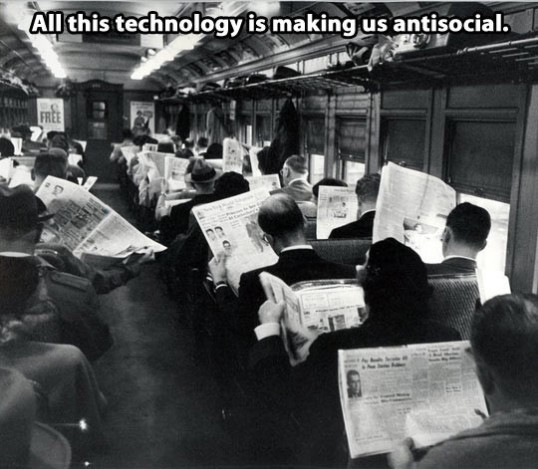
Tagged: Complaining about technology, Kids these days., Old people, Rembrandt, Right What You No, Tyson Adams

May 26, 2016
Why did Australia abolish the White Australia Policy?
The White Australia Policy was a fantastic piece of legislation that was brought in just after Australia’s federation in 1901. Back then it was popular to think that Aboriginals didn’t exist, or weren’t worthy of acknowledgement, and women were still a year away from full voting rights nationwide. Great time to be alive.
After the second world war – commonly referred to as WW2 and the go-to source of movie badguys (Nazis: hate those guys) for the next 50 years – the Menzies and Holt governments started rolling back pieces of the legislation. In 1975 Gough signed in the Racial Discrimination Act to stop any further problems. Totally worked.
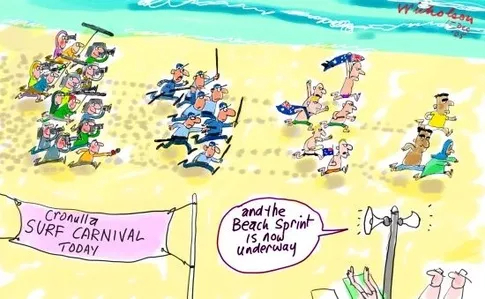
After the war there was a lot of people wanting to immigrate, preferably to countries that hadn’t been turned into massive craters by years of bombing. There were also a lot of ex-servicemen who were stationed overseas and had discovered the local non-white women. They’d also made friends with non-white people in general. Suddenly there were Aussies who wanted their non-white wives, friends, and associated families to come to Australia. In 1949 Harold Holt allowed Japanese war brides into the country. Ten years later legislation was passed so that they were able to be sponsored for citizenship. Holt later introduced the Migration Act in 1966, effectively dismantling the White Australia Policy. Holt was so pleased he went swimming a year later, he’s due back any day now.
So what ended the White Australia Policy was the military in action.
This post originally appeared on Quora.
Tagged: Harold Holt, Humor, Humour, Immigration, Japanese war brides, Migration, Prime Minister Harold Holt, Q and A, Q&A, Quora, Quora answers, Racial discrimination act, Racism, Right What You No, Satire, Sexism, Tyson Adams, White Australia Policy

May 24, 2016
Too funny! And true!
I saw Susie shiv Sam, sitting in a shoe shine shop.
Where she sits she shines and stabs, and where she shines she sits sinfully.







